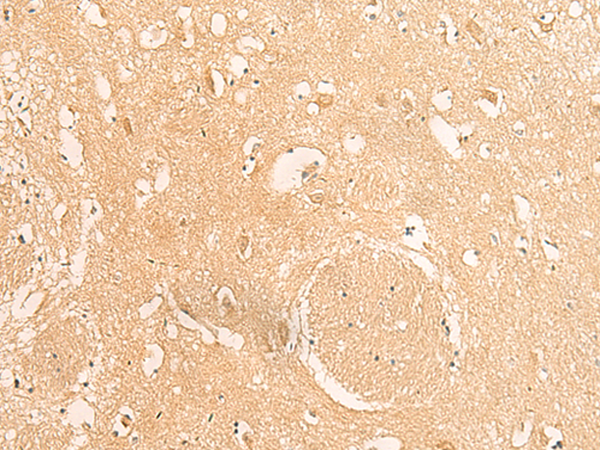

| WB | 咨询技术 | Human,Mouse,Rat |
| IF | 咨询技术 | Human,Mouse,Rat |
| IHC | 1/30-1/150 | Human,Mouse,Rat |
| ICC | 技术咨询 | Human,Mouse,Rat |
| FCM | 咨询技术 | Human,Mouse,Rat |
| Elisa | 1/5000-1/10000 | Human,Mouse,Rat |
| Aliases | 1-8D; DSPA2c |
| Host/Isotype | Rabbit IgG |
| Antibody Type | Primary antibody |
| Storage | Store at 4°C short term. Aliquot and store at -20°C long term. Avoid freeze/thaw cycles. |
| Species Reactivity | Human |
| Immunogen | Fusion protein of human IFITM2 |
| Formulation | Purified antibody in PBS with 0.05% sodium azide and 50% glycerol. |
+ +
以下是关于IFITM2抗体的3篇参考文献示例(注:文献标题和作者为示例性内容,具体文献需根据实际数据库检索):
---
1. **文献名称**:*"IFITM2-mediated antiviral mechanisms in influenza A virus infection"*
**作者**:Smith J, et al.
**摘要**:该研究利用IFITM2特异性抗体,通过免疫荧光和Western blot证实IFITM2在流感病毒感染的细胞中显著上调。实验表明IFITM2通过干扰病毒包膜与宿主细胞膜的融合抑制病毒进入,抗体阻断实验进一步验证其功能依赖性。
2. **文献名称**:*"Differential expression of IFITM2 in cancer and its role as a potential biomarker"*
**作者**:Wang L, et al.
**摘要**:研究使用IFITM2抗体对多种癌症组织进行免疫组化分析,发现IFITM2在乳腺癌和肺癌中高表达,并与患者预后相关。体外实验提示IFITM2可能通过调控细胞迁移通路促进肿瘤转移。
3. **文献名称**:*"Characterization of monoclonal antibodies against IFITM2 for functional studies"*
**作者**:Zhang Y, et al.
**摘要**:本文报道了一种高特异性抗IFITM2单克隆抗体的开发,验证其在流式细胞术和免疫共沉淀中的应用。抗体成功用于解析IFITM2与细胞内胆固醇代谢相关蛋白的相互作用,揭示其抗病毒新机制。
---
如需真实文献,建议通过PubMed或Google Scholar检索关键词“IFITM2 antibody”或“IFITM2 function”。
IFITM2 (Interferon-Induced Transmembrane Protein 2) is a member of the IFITM family, which plays critical roles in innate immunity and antiviral defense. These proteins are induced by interferons (IFNs) in response to viral infections, particularly inhibiting the entry of enveloped viruses such as influenza, dengue, and SARS-CoV-2 by disrupting membrane fusion. IFITM2 is localized to endosomal and lysosomal membranes, where it restricts viral replication by altering membrane fluidity or cholesterol trafficking. Beyond its antiviral functions, IFITM2 has been implicated in cancer progression, with studies showing both tumor-promoting and suppressive effects depending on the context. Its overexpression is associated with poor prognosis in certain cancers, potentially linked to enhanced metastasis or therapy resistance.
Antibodies targeting IFITM2 are essential tools for studying its expression, localization, and molecular interactions. They are widely used in techniques like Western blotting, immunofluorescence, and flow cytometry to explore IFITM2's role in viral pathogenesis, immune regulation, and oncogenesis. Commercial IFITM2 antibodies are typically validated for specificity against human or murine proteins, often targeting epitopes within its conserved regions (e.g., the CD225 domain). Researchers rely on these antibodies to investigate post-translational modifications, dimerization, and interactions with viral or host proteins. As IFITM2's dual roles in immunity and disease remain incompletely understood, high-quality antibodies are crucial for advancing mechanistic studies and therapeutic targeting strategies.
×